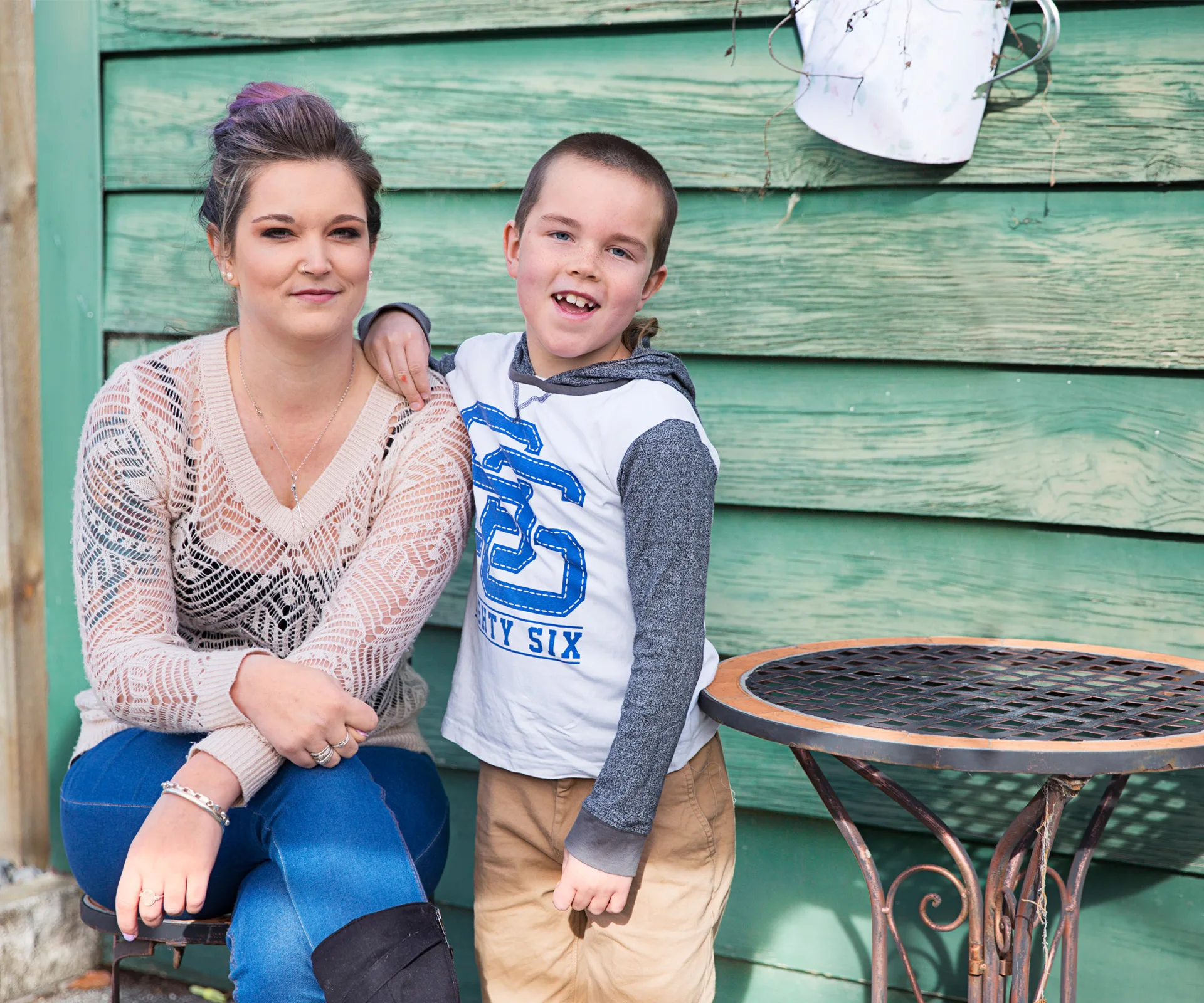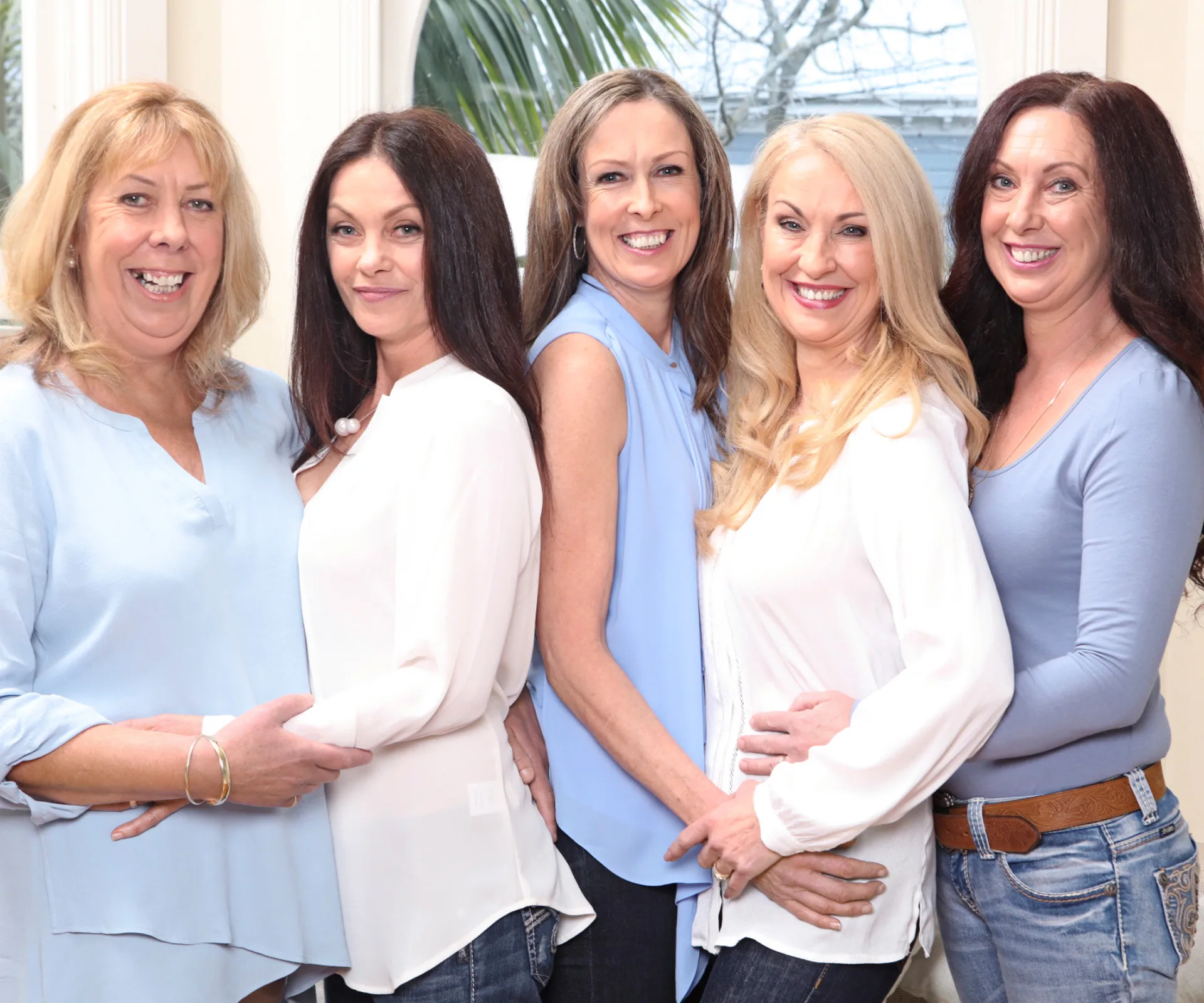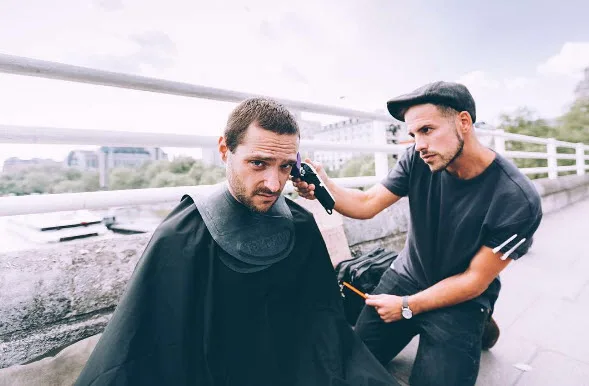When Kahn Taylor grows up, he wants to be a carpet layer like his father and ride motocross. But he has Wolfram syndrome, an exceptionally rare condition that means he’s losing his sight and hearing, and may also lose his senses of smell, taste and touch.
For his mum Candace Porter, remaining positive is a daily challenge.
Although there are no other known cases of Wolfram syndrome among children in New Zealand, she’s found out enough about it to understand that Kahn will be blind by the time he’s in his teens. He may go deaf shortly after that.
“What worries me the most, though, is the mental health aspect,” the 30-year-old tells. “I’ve read that people with this condition can get very depressed. They’re trapped, really – their brains still work, and they can speak and move, but they can’t see, hear, taste or smell. It’s not really a life.”
Candace is terrified at what lies ahead. But still, this bubbly full-time mum, who lives in Hastings, tries never to let it show. Her kids, Kahn (7) and two-year-old twins Kale and Noah, are her world.
“I grieve in my own time,” she explains. “I have to stay focused for Kahn.”
Kahn seemed like a normal, healthy baby when Candace and her then-partner Ben welcomed him into the world in 2009. But by the time he was four, he’d been diagnosed with diabetes.
“Finding out about the diabetes was horrible,” recalls Candace, who now has a new partner, Chad.
“I felt like the world was ending. Luckily, Kahn was so strong. He picked up the regime and now he does his own finger-prick tests to check his insulin levels.”
However, diabetes was only the beginning. Aged six, Kahn began having issues with his hearing, finding it hard to see properly, wetting the bed and started passing out.
It turned out Kahn has two types of diabetes – commonly known as “sugar diabetes” and “water diabetes”. Water diabetes was responsible for the large volumes of urine in Kahn’s body, while the sugar diabetes meant he wasn’t producing enough insulin.
It was a rare combination that got Kahn’s paediatrician, Oliver Grupp, thinking.
“Something clicked for him and he began researching Wolfram syndrome,” recalls Candace. “He recommended Ben, Kahn and myself all have a gene test. For our son to have Wolfram, both Ben and I had to carry a rare gene mutation.”
The family’s blood samples were flown to Australia for testing and all three came back positive. Candace and Ben are gene carriers, and Kahn has Wolfram syndrome itself.
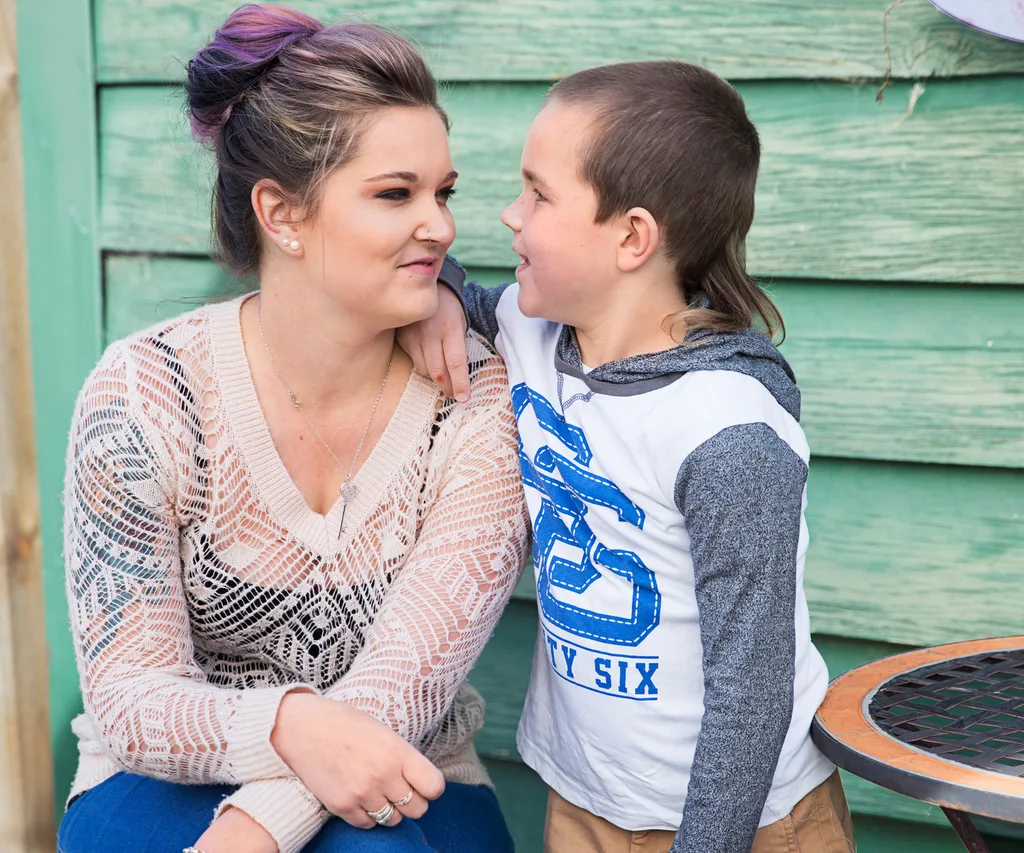
“It was awful news, but it was also a miracle in a way,” says Candace. “Without the diagnosis, Kahn could have gone blind without us ever knowing why. Now we know more about what is happening and what we can do to help.”
Candace, who also lost an unborn son to spina bifida in 2012, says the most shocking news for her was learning of Kahn’s life expectancy.
“He’ll live to about 30 – up to 50 years old if we’re lucky. He’ll be in our care forever. There is no cure.”
But there is still hope. Candace discovered a specialist based at the Washington University School of Medicine, in Missouri, called Fumihiko Urano whose passion is finding better ways to manage Wolfram’s. Candace got in touch and Dr Urano has been “fantastic”, she says.
“He tells me there are many medical breakthroughs every day and anything could happen.”
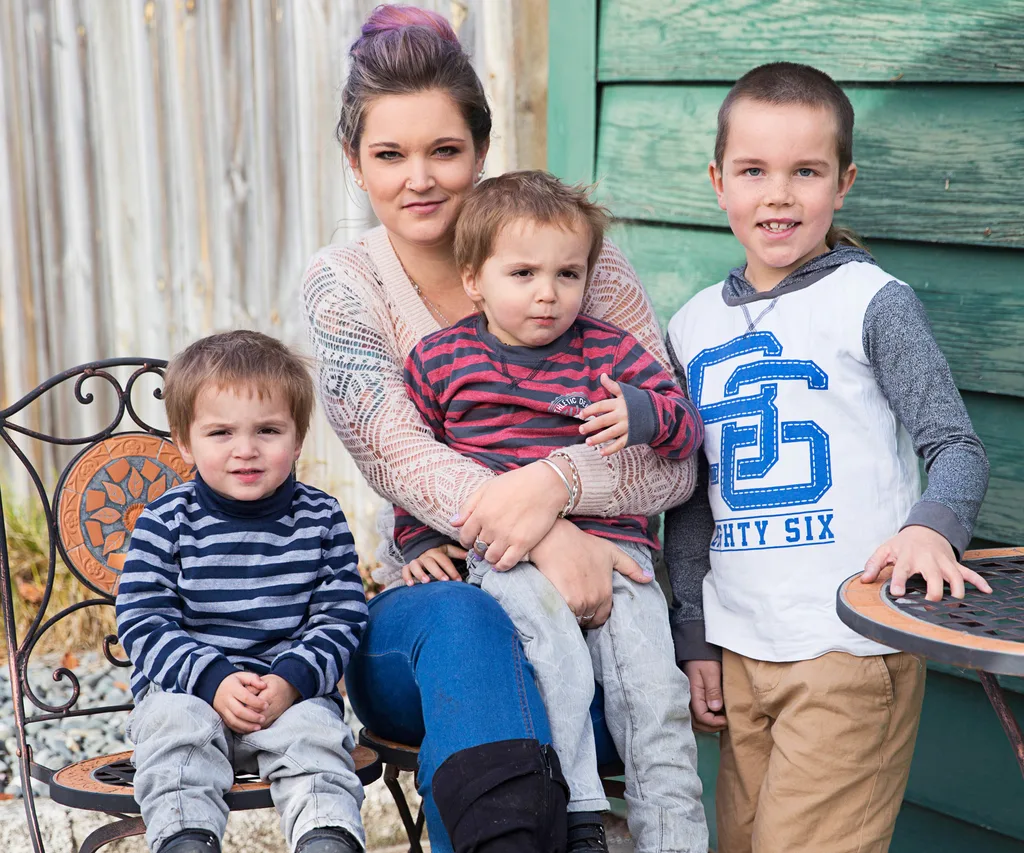
Candace has told Kahn the truth about his condition.
“I explained that he would lose his sight, but it could take years. I don’t think it fully sunk in until he had an eye test and realised how little he could see.”
Kahn’s school manages by seating Kahn – who loves to write – at the front of the class and printing worksheets blown up on A3 paper. He’ll soon have his tonsils and adenoids out to help with his hearing difficulties.
Now Candace hopes to take Kahn to the US where Dr Urano is planning a drug trial. If her son qualifies as a candidate, it could help slow his loss of sight. And if they raise enough money, Disneyland is also on the cards!
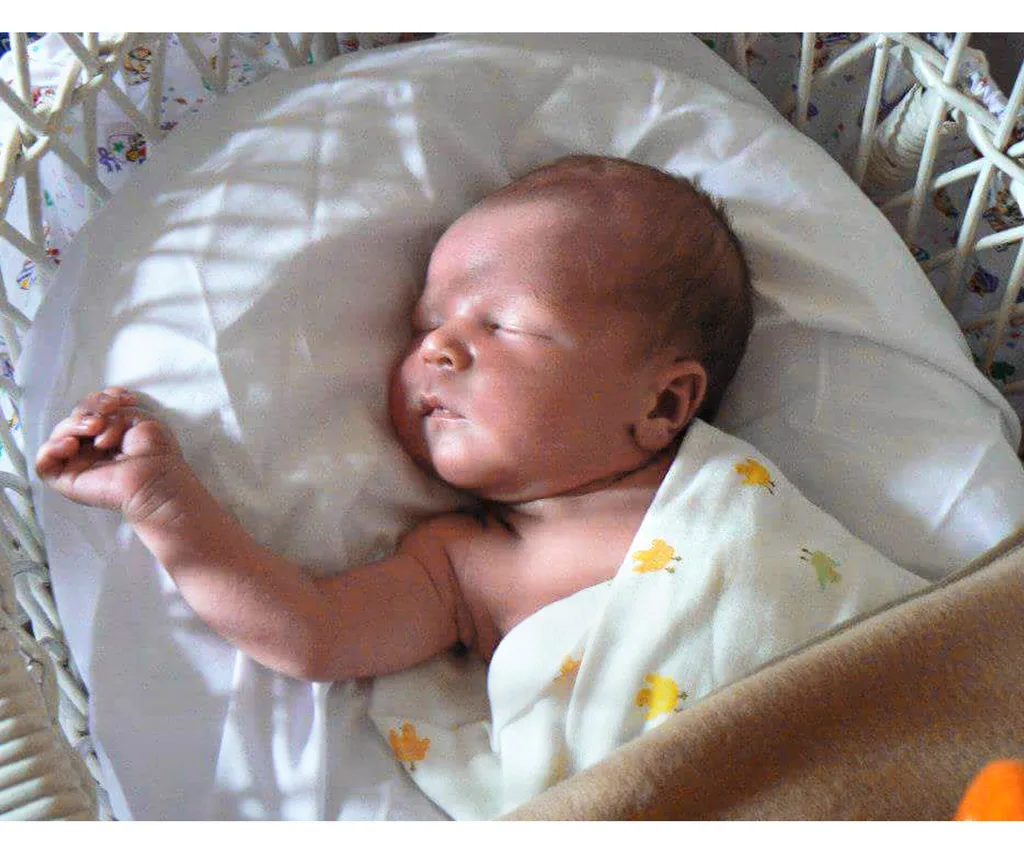
Kahn was a healthy baby when he arrived in 2009.
Time is of the essence, says Candace.
“My sister Shannon has set up a Givealittle page. She’s doing a half marathon to raise money and I’m selling a lot of stuff on TradeMe.
Kahn’s long-distance vision is deteriorating so quickly. We thought we had more time – until he was about 11 or 12 – but it’s happening now.”
Ben shares Kahn’s care and Chad is “awesome” with Candace’s kids, she says. Losing her eldest boy doesn’t bear thinking about.
“I know the worst-case scenario and I’ve got to grips with it, but Kahn will never see me upset,” Candace insists.
“Everything I’ve gone through before has prepared me for this – I’ve already lost one of my babies and now I have to prepare to one day lose another.
“This opportunity to take him to the States… it means the world to me.”
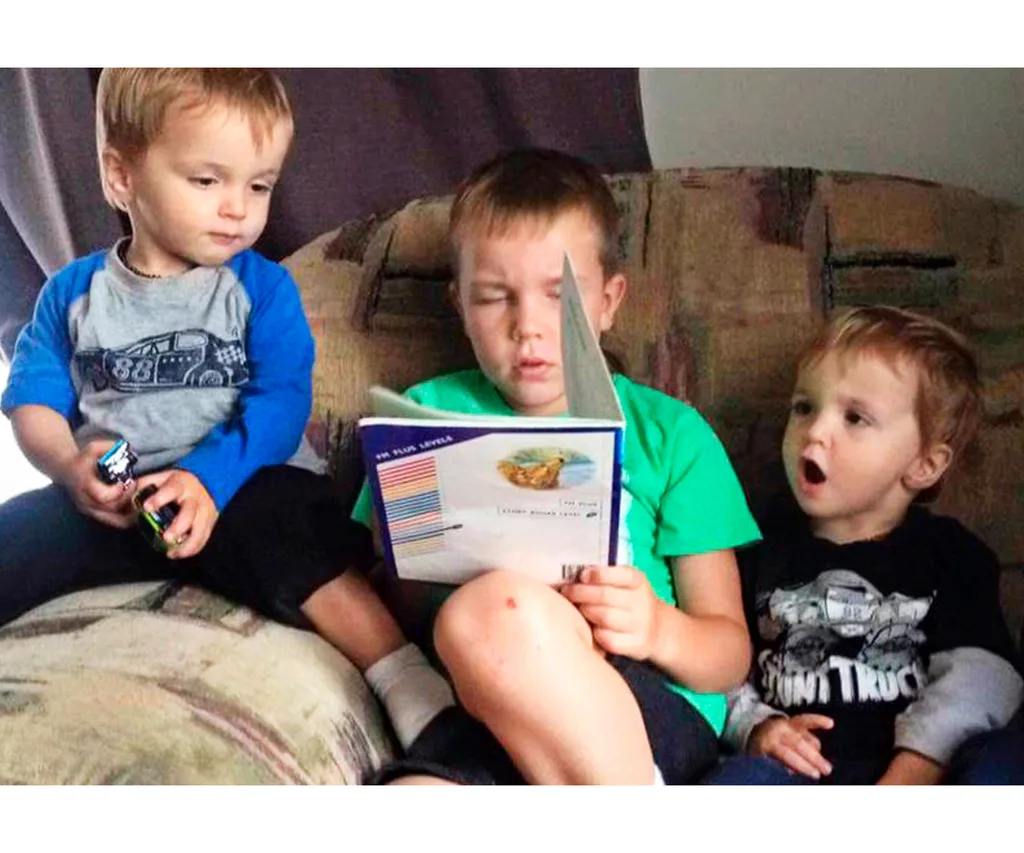
The devoted brother to twins Kale and Noah will soon be unable to read to them (below).
About wolfram syndrome
How rare is it?
It only occurs in 1 in 770,000 people. Candace knows of only one other case in New Zealand – a 38-year-old Christchurch man.
What are the symptoms?
Diabetes, blindness, deafness, loss of taste and smell, loss of bladder control, respiratory problems, fatigue, issues with balance, spasms and other neurological problems, depression and mood swings
How can I help?
Donate at givealittle.co.nz/cause/kahntaylor.
Words: Fiona Fraser
